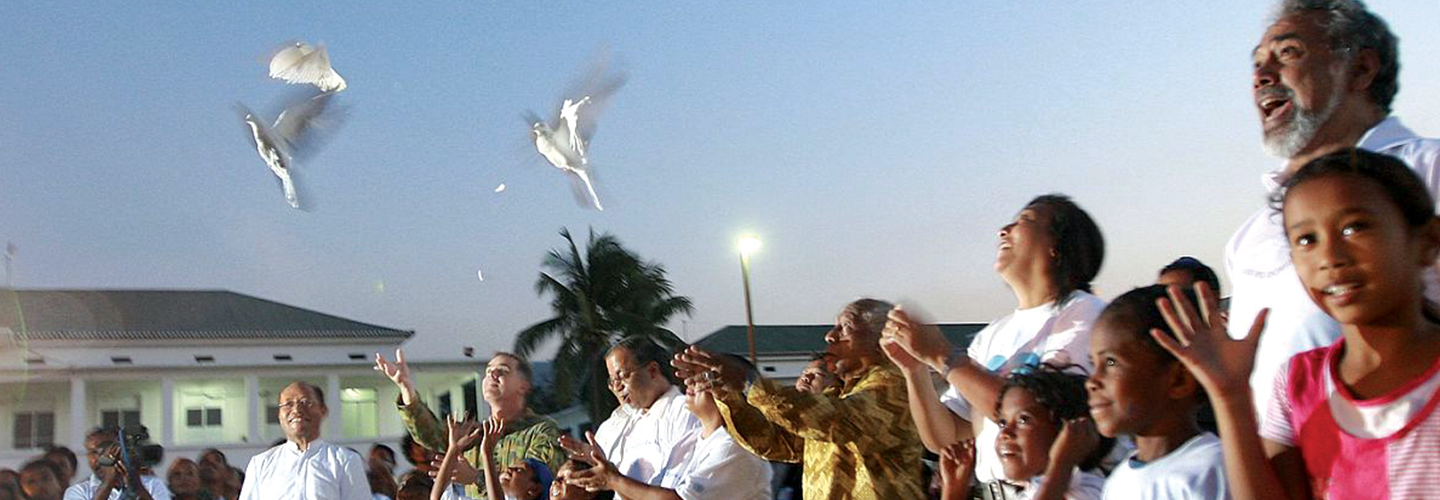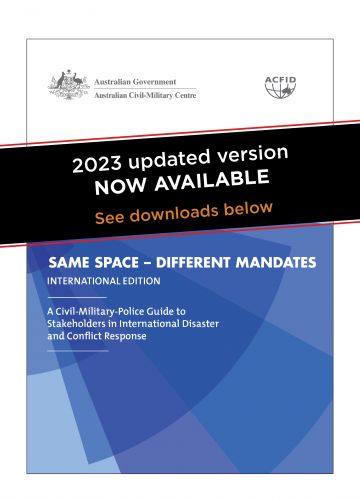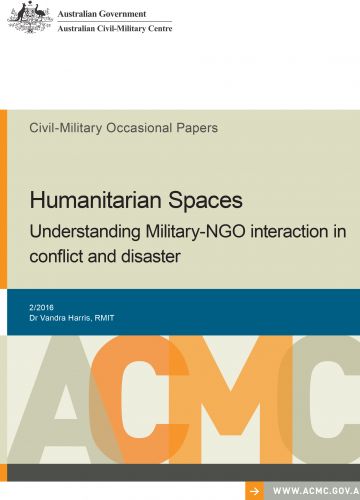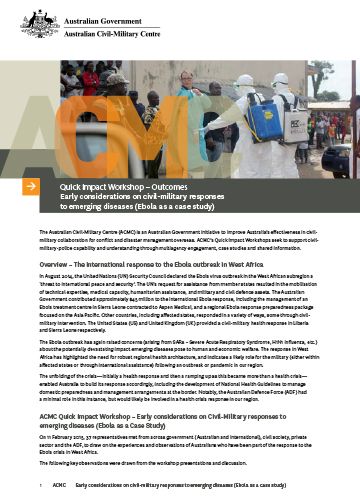Assisting local communities in times of crisis
Most of the work of humanitarian action is done by local communities and local organisations. It is only when a crisis is beyond the capacity of local authorities to handle that they will request international support.
ACMC's Role in Humanitarian Action
The ACMC’s role is to build preparedness and capacity in advance of an operation requiring a humanitarian response, ACMC does not perform directly operational roles, though ACMC staff may provide:
- lessons analysis and support; assistance to operational planners;
- strategic policy advice;
- training support;
- reach-back to subject matter experts; and
- identification of best-practice.
We also build strong relationships between humanitarian relief organisations, regional and international organisations; academic experts and private sector providers.
We place great emphasis on prevention. Countries and communities that are adequately prepared are more likely to be resilient in the face of an emergency. Investing in preparedness saves both lives and money.
ACMC staff are expected to think in the medium to long term to develop strategies for better civil-military-police coordination in different scenarios. That means making connections between different actors, introducing them to each other and preparing them to work together in crisis scenarios. It is too late to form relationships between government and humanitarian actors when you are deployed in the field during a crisis.





